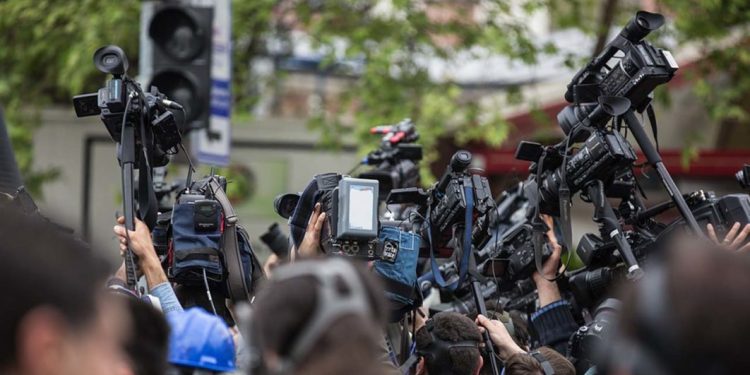Media Rights Groups, media stakeholders, journalists and human rights defenders have adopted the 2024 Lagos Plan of Action on Media Freedom in Nigeria to protect and promote the safety of journalists in Nigeria. The Plan of Action was adopted at an event organized to commemorate the World Press Freedom Day 2024 under the theme, “The Imperative of Media Freedom for Democratic Governance.”
The meeting which was organized by Media Rights Agenda (MRA) and Global Rights: Advocates for Sustainable Justice, in collaboration with the International Press Centre (IPC) and the Centre for Media and Society (CEMESO), was moderated by Ms Blessing Oladunjoye, Publisher of BONews, and had in attendance media proprietors, publishers, academics, human rights defenders and representatives of various civil society organizations, lawyers and other professionals.
The meeting featured the harrowing experiences of journalists who have suffered attack, victimization and abuse in the course of their work.
Journalists who shared their stories were: Mr. Clinton Umeh of Journalists 101, based in Enugu; Ms. Khadija Yahaya, a journalist with Arewa Radio in Kano; Ms. Charity Uwakwe, an online journalist with Famous Reporters, based in Umuahia, Abia State; Mr. Eniola Daniel, a reporter with The Guardian newspaper in Lagos; and Mr. Benedict Uwalaka, a photojournalist with the Daily Trust newspaper, who is also based in Lagos.
The convening recommended that “given the scale of the challenges confronting the media sector in terms of the attacks on media freedom and the attendant hostile environment for media practice in Nigeria, it is imperative that media stakeholders foster greater collaboration to improve their effectiveness.
“This should encompass greater demonstration of solidarity among media professionals, among civil society organizations as well as between the media sector and civil society. There should also be better and more sharing of information about attacks and responses being contemplated or undertaken to avoid duplication of efforts.
“Federal and State Governments, through their relevant agencies such as ministries of information, the National Orientation Agency (NOA), media regulatory bodies, state-owned media establishments, among others, as well as other media stakeholders such as media professional bodies and civil society organizations should undertake media literacy and public sensitization activities to enlighten members of the public about the important role that the media play in society and the need to ensure their safety while respecting their rights.
“They should also be enlightened about the ethical and professional standards applicable to the media, legal and legitimate avenues open to them to seek redress when they have complaints about the conduct of media professionals or any breach of ethical or professional standards.”
The full Plan of Action which detailed the observations on the state of press freedom in Nigeria with recommendations can be accessed on Media Rights Agenda’s Website.

